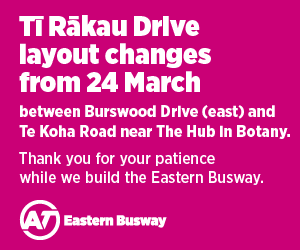
As customers, we can be horrible. We are demanding. We want service immediately, our standards are extremely high (we’re paying right?), We are busy and we know best.
The companies and individuals with whom we do business – the discerning ones at any rate – know this, or ought to know this. Without this fundamental acceptance that our customers have certain expectations is folly.
And it doesn’t matter whether we’re talking about shoes, a replacement window, servicing for the car or a sandwich at your favourite cafe, we want the best experience. If the price is competitive, that’s a bonus.
The equation is actually quite simple. We seek goods or services, we Google (or use social media) said services, and if we’re lucky, someone will recommend a cobbler or stylist or restaurant or dressmaker.
And it’s not all bad. Anecdotally, we know from social media sites which business or specialists people gravitate towards. They talk up the best fish and chip shop or handyman or dog groomer. We trust these recommendations.
There’s ground zero. Trust.
If my online community sings the praises of a vendor, we’re more than happy to check them out. We buy. Trade has thrived like this for a millennia.
Heaven forbid though if a customer experience is a shocker. The internet wields such power. We all know what a scathing review can do. It can be like biffing an ember onto bone-dry kindling. We’ve witnessed it. One voice can multiply at a terrifying rate and, like an out-of-control bush fire, can decimate a business. The retailer or service provider stands to lose so much, most particularly trust.
Without trust the game is lost, as customers will take flight without the slightest hesitation.
They will also take with them their friends, family and cash.
But smart operators needn’t despair. As quickly as the customer can turn on them, the customer can also be placated. Trust can be re-established as you will read in some our feature articles in this publication.
Even the most demanding of customers will accept that mistakes are made. The key as a business is to accept the wrong and make it right. Immediately.
This takes us onto another tack. Clever retail or service operators cannot be one dimensional. Businesses need to really understand what drives their customers. What makes them buy? In most cases, it’s not only about price or performance, says Business Link UK.
“Ask existing customers what they like about doing business with you. And asking potential customers what they look for in their buying decisions can also give you useful information to help develop your business – and your brand.”
As you’ll read in the following pages, your brand represents the whole customer experience. “You should regularly review your customers’ experiences of your business,” Business Link says.
I really like part of a blog by chief marketing officer Joanna Lord who exhorts: “Don’t just talk; do!”
“After you’ve promised people something, it’s important to deliver on that promise. Your brand is very much dependent on following through, whether it’s shown through great products, great service, great customer communications, or otherwise.
“You must make sure that brand promise is consistently delivered so it’s believed; only then will it be shared on your behalf.”
To stand out in the vast sea of competition, your businesses, brands need to truly impress.
“We can’t just be flashy or have a memorable logo; we need to stand for something that drives people to support us.
To put it simply: the more successful your brand, the easier it will be to build loyalty around that brand. A successful brand takes a great deal of intention when building.”
I’ll buy that.
Caption: We know from social media sites which business or specialists people gravitate towards. They talk up the best fish and chip shop or handyman or dog groomer. We trust these recommendations.









